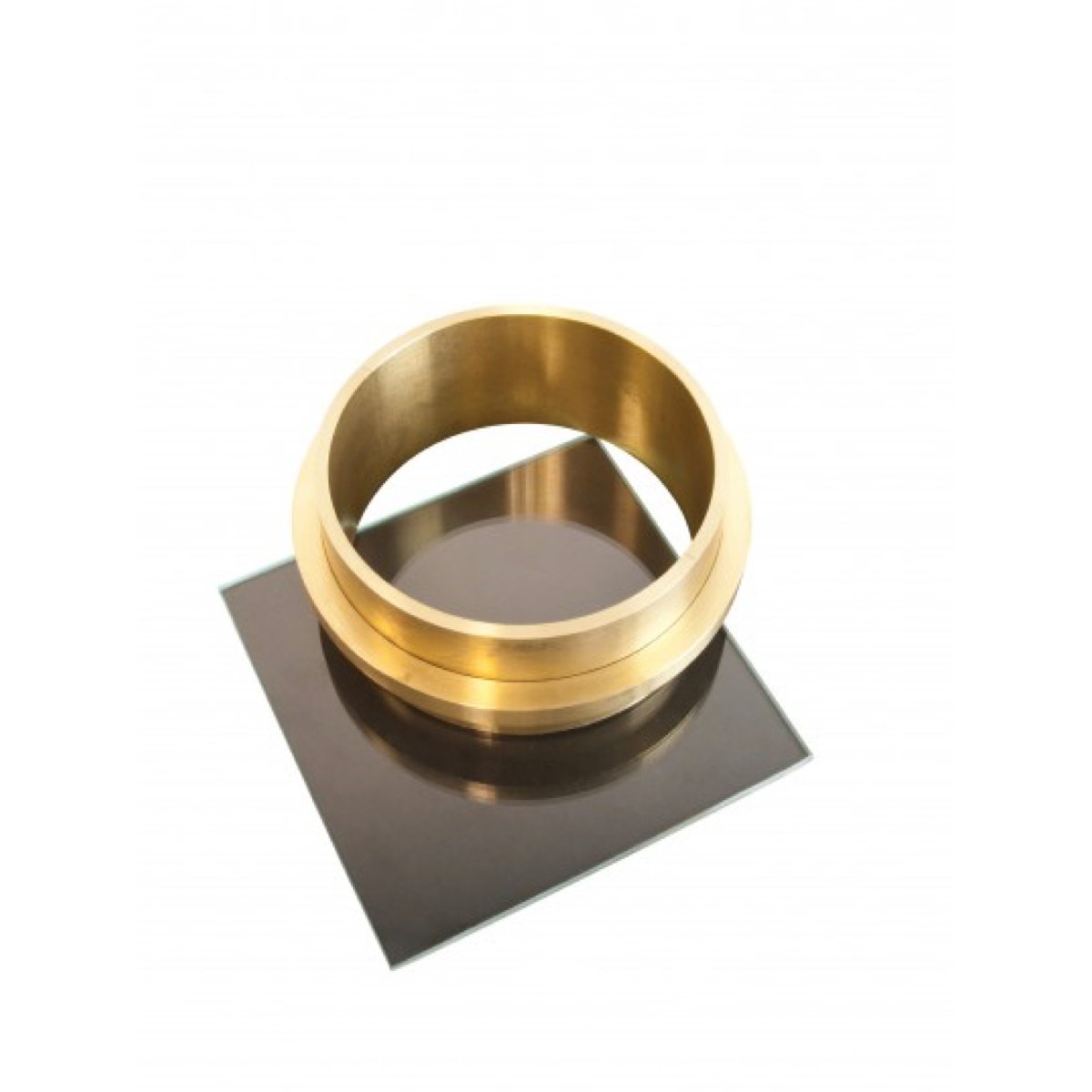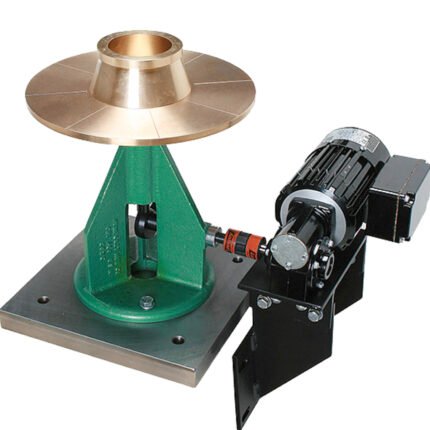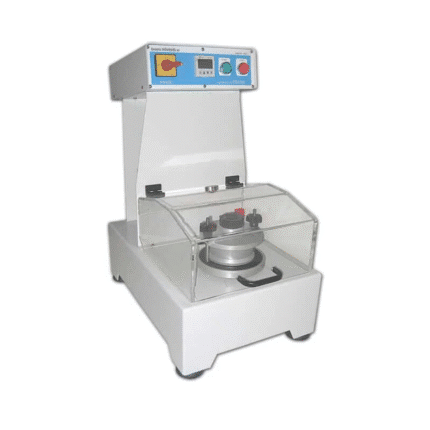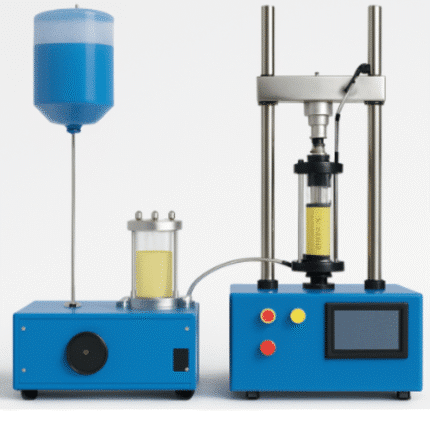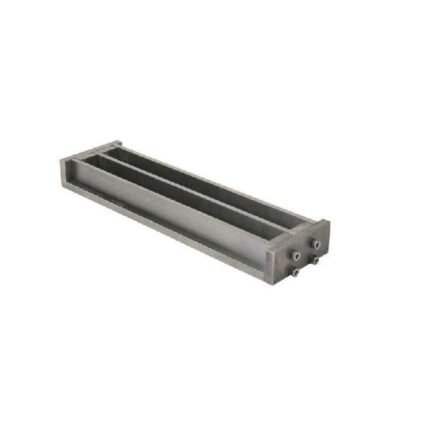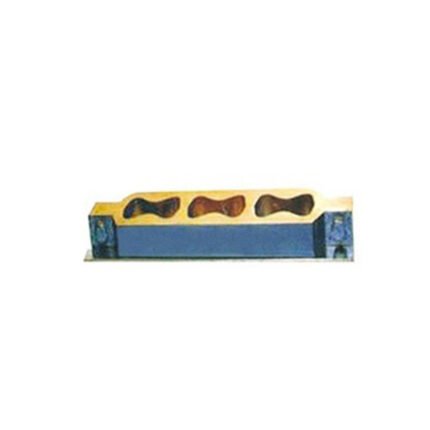AZA 0789 RING MOULD
- Standard ring mould for cement/mortar specimen formation
- Used in expansion, consistency, and setting tests
- Built from brass or gunmetal for durability
- Conforms to IS 4031 and ASTM C151 standards
- Suitable for use with Le Chatelier apparatus
Description
Ring Mould is a critical component in cement and mortar testing, used to form standardized specimens for expansion, consistency, and setting time evaluations. Crafted from durable metals like brass or gunmetal, this mould ensures accurate, repeatable sample preparation for laboratory testing — whether in cement manufacturing units, third-party QC labs, or academic research facilities.
Most commonly, the Ring Mould is associated with tests like Le Chatelier expansion test, which determines the soundness of cement. This test evaluates the material’s volume stability after setting, ensuring that it won’t crack or distort in service. The Ring Mould provides a uniform containment structure for the cement paste, enabling controlled expansion measurement.
As per IS 4031 (Part 3):1988 – Methods of Physical Tests for Hydraulic Cement: Determination of Soundness, the Ring Mould must be used with a split cylinder (typically in the Le Chatelier apparatus) to assess cement expansion. Similarly, ASTM C151 – Standard Test Method for Autoclave Expansion of Hydraulic Cement references a comparable design for performing high-temperature expansion tests.
Key Features:
-
Cylindrical mould with precise inner diameter and height
-
Typically includes a slit or split for use with Le Chatelier setup
-
Smooth inner walls for easy demoulding of samples
-
Designed to hold freshly prepared cement paste or mortar
-
Manufactured to tight tolerances for repeatability
The Ring Mould is critical to preparing specimens that reflect true material behavior under controlled conditions. This consistency is especially important in comparative testing, quality certification, and research-based formulation trials.
Common Applications:
-
Le Chatelier soundness testing
-
Autoclave expansion tests
-
Cement setting time comparisons
-
Consistency and flow behavior studies
-
Civil engineering education and training labs
In Le Chatelier tests, the mould is filled with a cement paste of standard consistency. Once set and subjected to boiling or autoclave conditions, the distance between the mould’s indicators is measured before and after treatment to assess expansion. This helps detect excess free lime or magnesia, which can cause late-stage cracking in cementitious structures.
Why Choose This Ring Mould?
-
Compliant with international standards
-
Highly reusable and resistant to chemical wear
-
Accurate dimensional stability for repeat testing
-
Works with Le Chatelier apparatus for expansion measurement
-
Lightweight and easy to clean
The Ring Mould may also be used independently for creating mortar rings in flow and shrinkage tests. When handled correctly, it allows consistent formation of samples for both destructive and non-destructive analysis.
Specifications:
| Parameter | Specification |
|---|---|
| Inner Diameter | 30 mm – 33 mm |
| Height | 30 mm – 33 mm |
| Material | Brass / Gunmetal |
| Type | Solid ring or split ring (as per test) |
| Finish | Machined and polished |
| Standards Compliance | IS 4031 (Part 3), ASTM C151 |
| Reusability | Yes, with proper cleaning |
| Application | Soundness, setting, and expansion testing |
Frequently Asked Questions (FAQ):
Q1: What is the Ring Mould used for in cement testing?
It’s primarily used for forming cement or mortar specimens to test expansion, soundness, and setting time.
Q2: Which standards apply to Ring Mould usage?
It conforms to IS 4031 Part 3 for soundness testing and ASTM C151 for autoclave expansion.
Q3: Is this mould reusable?
Yes. When cleaned properly after each use, the mould maintains its dimensional accuracy and finish over many test cycles.
Q4: Can I use this mould with Le Chatelier apparatus?
Yes. This mould is designed to fit seamlessly into Le Chatelier expansion testing setups.
Q5: What material is preferred — brass or gunmetal?
Both are corrosion-resistant and durable. Gunmetal offers slightly better wear resistance under frequent thermal cycling.
Additional information
| Inner Diameter |
30 mm – 33 mm |
|---|---|
| Height |
30 mm – 33 mm |
| Material |
Brass / Gunmetal |
| Type |
Solid ring or split ring (as per test) |
You may also like…
Abrasion Testing Machine for Glazed Tiles (AZA 1261)
Abrasion Testing Machine for Glazed Tiles (AZA 1262)
ABS Braking System Training Board Simulator (Model AZA1245)
Advanced Triaxial Test System (UU–CU–CD Capable) (AZA 1296)
- UU–CU–CD test modes for complete soil strength profiling
- Automated control of pressure, load, and drainage
- Compatible with clay, silt, sand, and mixed soils
- Integrated data acquisition and real-time graphing
- Meets ASTM D2850, D4767, BS1377, AASHTO standards
- Ideal for geotechnical, research, and academic use
Air Bag Trainer (Model AZA1246)
Alternator Trainer (Model AZA1247)
Related products
AZA 0788 VICAT NEEDLE APPARATUS WITH DASHPOT
AZA 0790 GILLMORE NEEDLE APPARATUS
AZA 0796 LE CHATELIER FLASK
AZA 0797 SHRINKAGE BAR MOULD
AZA 0802 DIGITAL BLAINE AIR PERMEABILITY APPARATUS
- Digital model for precise fineness testing
- Measures surface area in cm²/g (1500–6000 range)
- Complies with IS 4031 Part 2 and ASTM C204
- Built-in vacuum pump with digital timer
- Ideal for cement QC, R&D, and educational labs
- Includes calibration certificate & accessories

 Rock
Rock Aggregate
Aggregate Cement
Cement Concrete
Concrete Soil
Soil Steel
Steel Bitumen/Asphalt
Bitumen/Asphalt Security Survey Equipment
Security Survey Equipment General Items
General Items